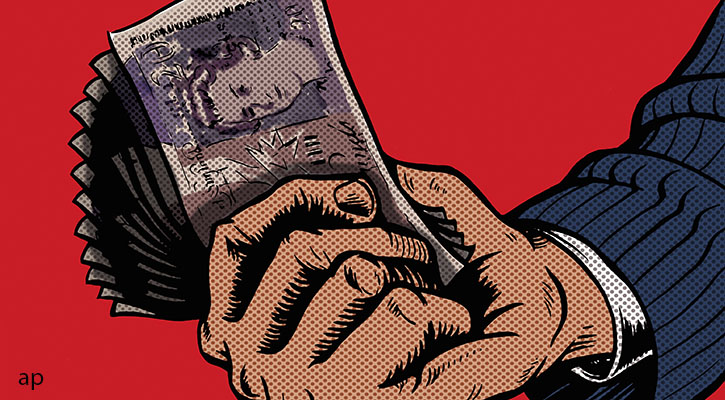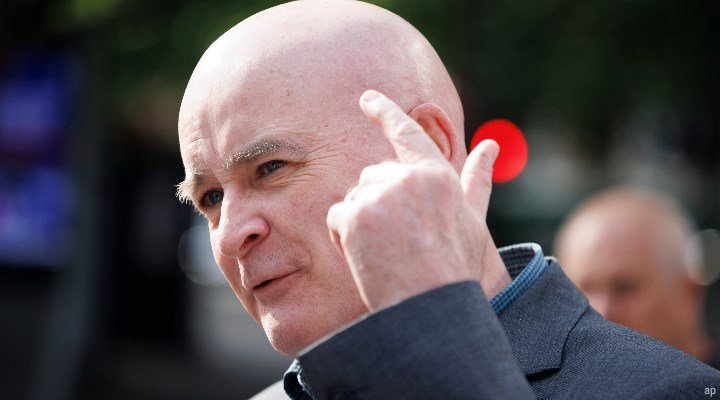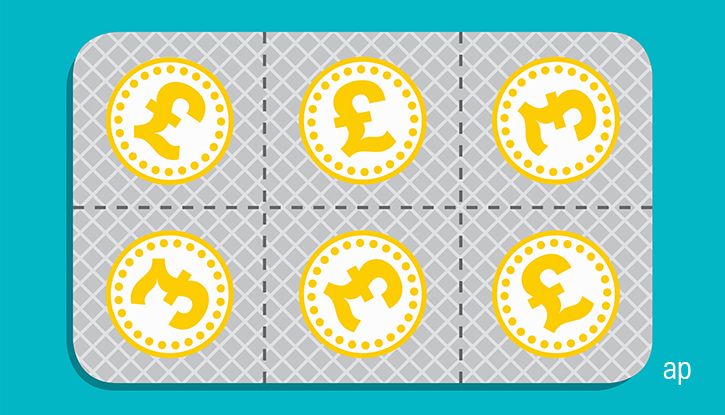
I’ve never met Mick Lynch. The one story I have about trade unions is the time I was sat in Vodka Revs in Liverpool and the secretary general of the Trades Union Congress (Frances O’Grady) walked in saying she "fancied a cup of tea". It was one of those delightfully British moments I’ll never forget.
But that’s a privilege. I lack proper stories about trade unions because I’ve never been on strike. Unlike several members of my family, I have never been so concerned about the conditions or pay in my profession that I’ve stood on a picket line. I am very lucky.
There are all sorts of ways in which the last week of industrial action has got me thinking. At one point I despaired at the treatment of decent people trying to do the right thing in a largely hostile press. At another I wondered how different ESG engagement really is to the process of collective bargaining.
But the dart that really stuck to the board (so to speak) was about winners and losers. If you care about ESG, there is real reason to be concerned.
Unfitter, Unhappier
At this point I could write a hyperbolic essay on the dreadful treatment of working people on dwindling incomes and how that has evolved over time. And why, in the era of the culture wars, various power brokers move with quite incredible speed to divert the public’s attention away from the topic of greed, and towards moments of irritating inconvenience – like a highly disruptive strike, or an environmental protest.
Instead, I’d like to reflect on the mechanics of wealth distribution, and who wins and loses. It’s a topic worthy of discussion in any jurisdiction, but in this country it is screamingly absent from the popular consciousness. People are acutely aware of inequality, but sometimes they understandably struggle to explain how it occurs. That needs illuminating by people who cannot in any way be accused – as Mick Lynch has been – of being burn-the-house-down Marxists.
In an external meeting today, a senior leader within the world of asset management told me what they believe is the prevailing mood among twenty- and thirty-somethings.
Which is this: the only way to become wealthy in Britain is to have rich parents or marry someone who is rich. Putting aside the painful volatility felt by investors in recent days, weeks and months, inflated asset values have played a huge part in pricing millions of people out of their own aspirations. That goes for property valuations as well.
No wonder our national productivity is so poor. If workers feel their efforts go unrewarded by a system that is frankly too expensive to live in, they are unlikely to work harder, be better, and do all the things the band Radiohead described in their sinisterly technological track Fitter, Happier, which has just turned 25. I reference that song specifically, because it’s modern technology in 2022 that takes the edge off the pain. But it doesn’t fix the problem.
When you realise even relatively wealthy young people feel this way, it puts something of the economic turmoil befalling people on lower incomes into stark relief. It is now widely acknowledged that real-terms pay is lower than it was in 2008. So what has gone wrong?

Buy-Back Britain
Plenty of things have gone wrong, but one elephant in the room is dividends. Whether paid to investors in private businesses, or to shareholders in public companies, our obsession with dividends begs questions about the priorities of corporate Britain. Much of this goes on behind closed doors.
Before you start panicking, I am not about to burn down the house. But what I’d like to ask is whether dividend cash is really being deployed as effectively as it might.
This is tricky. While it is a necessary and important part of risk and reward culture in any money-making system, it also continually risks becoming a culturally acceptable embezzlement of vital social capital. It costs companies billions, and, if you're really radical about it, you might argue at least some of that cash should be spent elsewhere: in increased pay, in communities, and in the fight for net-zero.
If you’re an ESG investor, this really does matter. You might well have excluded oil companies, limited your portfolio’s ESG risk using appropriate metrics, looked for specific impact opportunities, and constantly be on the lookout for ESG opportunities. But are you monitoring how the companies in your funds deploy their cash? Dividends are one of the frontlines in the battle for good corporate citizenship.
If ever there was a time to ask questions about this, it’s now. So many big companies are launching share buyback schemes, which, while technically different to the payment of dividends, do exactly the same thing and result in precisely the same investor emotion: pleasure. That’s the simple bit. But it’s become more problematic since the pandemic.
Losing Streaks
When the government rightly deployed billions of pounds of public cash to prop up businesses large and small in 2020, the world took note.
If we’re talking dartboards, some of that cash really helped (hit), some of it ended up in the wrong pockets (miss), and some of it was blatently embezzled (dart accidentally hits innocent bystander in the head). There are plenty of other examples of this kind of subsidy that are less exceptional. They are part of how Britain is run. Unfortunately for the various news anchors who misunderestimated Mick Lynch, they are a big part of transport policy.
Against that backdrop, it’s no wonder the unions are incredulous at the hypocrisy of socialism-but-only-when-it-suits-us-politically. This is exactly what Phil Ochs was talking about in the totally unloved protest song Love Me I'm a Liberal.
Having been hammered by over a decade of austerity in an economic environment very conducive to handing wealthy-enough investors large sums of cash, those on low incomes are seeing that, when the going gets tough, the other half prospers regardless. It’s proof for them that we’re not in this together, and proof for me that too many people are on a losing streak. That's what's keeping Mick in a job. I'm sure he'd rather be doing something else.
Ollie Smith is UK editor at Morningstar




























